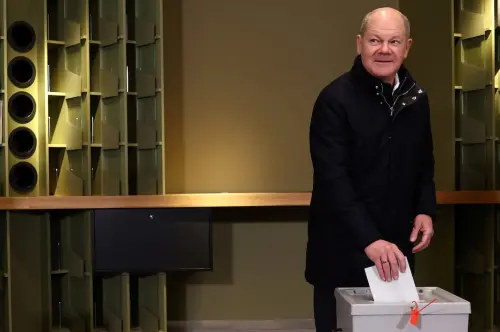Germans voted in a national election on Sunday, where Friedrich Merz's conservatives were expected to regain power, while the far-right Alternative for Germany (AfD) party was predicted to achieve its best result yet in the troubled European powerhouse.
Merz's CDU/CSU bloc, while strong, was unlikely to secure a majority in Germany's fragmented political landscape, necessitating coalition discussions. Negotiations were anticipated to be challenging after a campaign that highlighted sharp divisions on migration and addressing far-right politics in a country burdened by its Nazi history.
Potential outcomes included Chancellor Olaf Scholz serving in a caretaker capacity, delaying vital economic policies. This scenario could lead to a leadership vacuum in Europe amidst challenges such as U.S. threats of a trade war and efforts to broker a Ukraine ceasefire without European input.
The German public's sentiments have shifted significantly since the 2015 migrant crisis, with concerns about living standards rising to levels not seen since the 2008 financial crisis.
The election campaign focused on concerns about irregular immigration and security. A recent incident involving an attack at Berlin's Holocaust memorial underscored these anxieties. The Trump administration voiced support for the AfD, adding international intrigue to the campaign.
With the AfD set to secure a substantial vote share, mainstream parties have ruled out cooperation. The future governance landscape hinges on potential coalition formations, with analysts predicting challenges in reaching agreements due to the rise of smaller parties.
EU allies are cautiously optimistic for a more cohesive government post-election to drive domestic and bloc-wide policies. Reforming the government's borrowing limits is among the expectations if Merz assumes power.
Analysts anticipate a probable coalition between Merz's conservative bloc and the SPD or a broader multi-party coalition depending on election outcomes. Voters like Mike Zeller expressed hopes for a functional government without the AfD's involvement.
